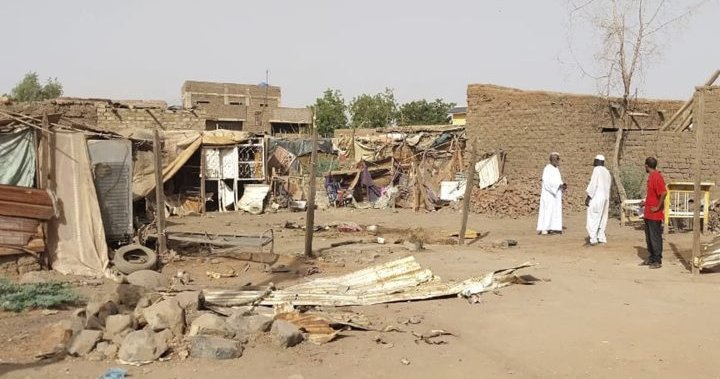
UN Security Council urges immediate Sudan ceasefire, renewed transition talks
Global News
The U.N.’s most powerful body strongly condemned all attacks on civilians since fighting between rival generals vying for power broke out in mid-April.
The U.N. Security Council called Friday for an immediate cease-fire in Sudan to be followed by a permanent halt to hostilities and fresh efforts to reach a lasting democratic political settlement in the conflict-wracked country.
The U.N.’s most powerful body strongly condemned all attacks on civilians since fighting between rival generals vying for power broke out in mid-April and called for “rapid, safe and unhindered access throughout Sudan” to help millions in need.
The fighting has killed at least 866 civilians and wounded thousands more, according to the Sudanese Doctors’ Syndicate which tracks civilian casualties. And more than 1.3 million people have fled their homes to try to escape the violence, with over a million still in the country and 320,000 in neighboring Egypt, South Sudan, Chad, Ethiopia, and the Central African Republic, according to the U.N.’s International Organization for Migration.
The press statement from the council was issued before the council voted unanimously to extend the U.N. political mission in Sudan for six months, instead of a year, to give members time to see what happens on the ground and consider its future.
United Arab Emirates Ambassador Lana Nusseibeh, the current council president, called it “very positive” that all members not only voted to extend the U.N. mission but united behind a “very substantive” statement “that lays out the council’s expectations of what should happen next in Sudan — and that is clearly an immediate and permanent cease-fire arrangement.”
The Security Council underlined the need “for strengthened international coordination and continued collaboration” and reaffirmed “their firm support for African leadership,” noting the African Union’s six-point roadmap to resolve the conflict as well as efforts by the Arab League and the regional group IGAD.
Gabon’s U.N. Ambassador Michel Biang told the council after the vote that the security situation in Sudan continues to worsen.
“The country is at a critical stage of its history with a heightened risk of civil war if the conflict continues,” he warned, speaking on behalf of the two other African members on the council, Ghana and Mozambique, as well.“And there is, if that occurs, a grave risk of serious consequences being visited upon all countries in the region.”











